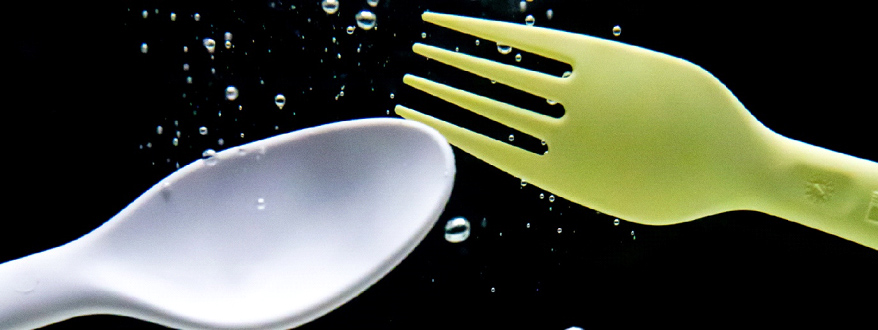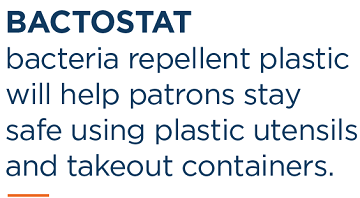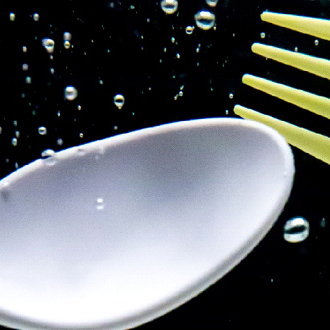
The plastic food utensils industry is worth over US$2.9 billion a year, and found in almost every aspect of daily living. As more restaurants transition to takeout and delivery options, and passengers return to the sky, consumers remain concerned about viral transmission and the possibility of spreading disease through high-touch items like disposable utensils. Multiple studies have found harmful bacteria to be able to live on plastic surfaces for anywhere between a few hours to a few days.
As restaurants and food service providers transition and improve their cleanliness standards, it is important to assess the plastic materials used in utensils and takeout containers. Improving plastic materials to be safe to touch and bacteria-repellant would help limit the spread of harmful bacteria and cross-contamination, combating viral transmission through bacteria-resistant plastics.
BACTOSTAT’s bacteria resistant properties actively fight the spread of harmful bacteria and slow its growth.

BACTOSTAT is a unique plastic solution with bacteriostatic, non-toxic, eco-friendly and bacteria repellent properties, used by multiple clients and partners to provide a Safe-To-Touch option for consumers.

UTENSILS
Studies have shown bacteria transmission to occur when dining with plastic utensils, and the utensils themselves can be unsafe to use due to the long gestation periods of bacteria. The ASTM G21 and ASTM G22 compliant properties of BACTOSTAT plastics resist the growth of microorganisms and will help patrons feel more confident using plastic utensils.

REUSABLE TAKEOUT CONTAINERS
Disposable takeout containers are contributing to more global waste on a daily basis. Reusable takeout containers can reduce plastic garbage. Reusable food containers made from BACTOSTAT plastic offering bacterial repellent and antiviral functions, as well as biocide-free, eco-friendly, non-leaching and US-FDA & (EU) 10/2011 compliant.



